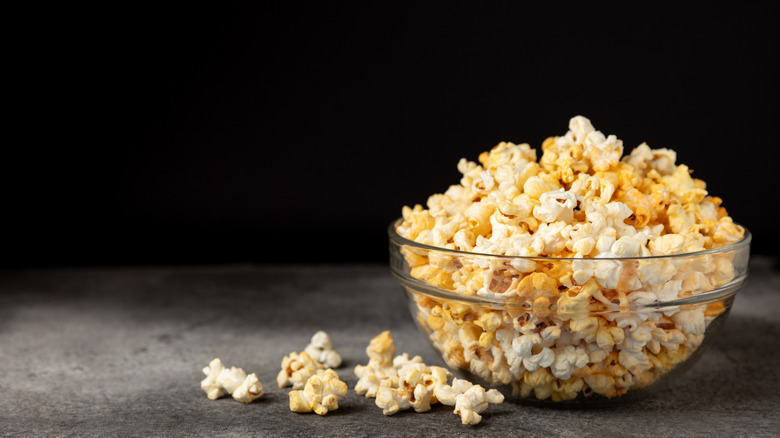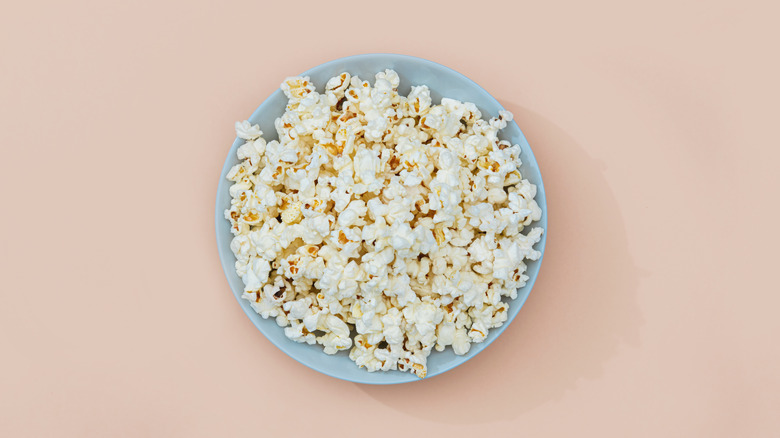Here's Why Your Popcorn Is So Chewy (And What You Can Do About It)
Popcorn is a great snack – Illinois even named popcorn its official state snack food. It's low in calories and one of the world's best sources of fiber, with an impressive 4.11 grams for every 2 tablespoons of unpopped kernels. This means it can satisfy your crunchy cravings without compromising your diet. Aside from that, popcorn is extremely delicious and a highly popular treat, whether you're at the cinema or settled in for a cozy movie night at home.
Imagine you've just hit play on your favorite Netflix show, and you've made yourself comfortable with a generous bowl of popcorn. But as you dig in, you suddenly realize it's unexpectedly chewy. Not quite the texture you wanted, right? Now the only thing left to do is pause your movie, toss the popcorn in the trash, and prepare a fresh batch. Or, is it?
There are actually two main explanations for why your popcorn turned out the way it did, and it all has to do with moisture content. The first possibility is that steam got trapped in the pot during the popping process, probably because the kernels were too wet or had too much moisture. The second reason is when there are a lot of unpopped kernels or kernels that didn't pop properly (these are often called old maids), suggesting your kernels were most likely too dry and lacked moisture. The good news is there's something you can do about it!
How to make the perfect popcorn?
To improve your popcorn's texture, start with high-quality kernels. Since popping relies on the right moisture content, look for kernels with 14%-15% moisture for the best results. This makes proper storage crucial. A well-sealed container in your pantry or another dry storage space can help maintain the ideal moisture level. When kernels are heated, water inside them turns to steam, building pressure against the hull until it bursts. Sometimes, though, when using a lid, steam can accumulate in the pot. To avoid this, simply tilt the lid to let the steam out as your kernels pop.
It's also important to pay attention to how much oil you use. Using three tablespoons of oil for every 1/3 cup of kernels is ideal. This quantity is enough to cover them and create a barrier that repels moisture. But be careful not to overdo it, as too much oil can make your popcorn chewy. It's also crucial to heat the kernels evenly. Kernels pop best between 400 and 460 degrees Fahrenheit and require constant shaking. Without it, they can either burn, or if heated too slowly, they can release moisture and cause the starch to overcook. The final thing to keep in mind is not to let them sit out for too long as they can absorb humidity and lose their crispiness.
Now that you've got the basics, consider making your popcorn taste like heaven or adding in the one ingredient that can make popcorn taste cheesy. You could also follow Ina Garten's tip to elevate your microwave popcorn.

